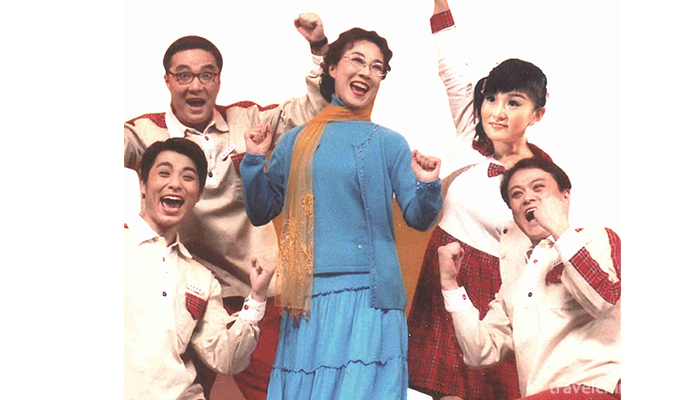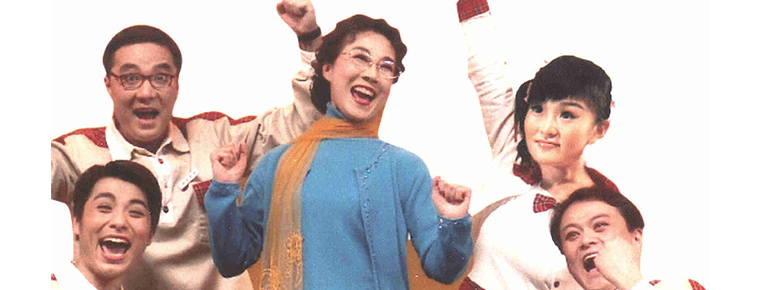Comic Opera Funny opera
Comic Opera Funny opera
Funny opera is one of the local dramas in Shanghai. It is now mainly popular in Shanghai and its surrounding Wu dialect areas.
Most of them use Shanghai dialect as their expressive language, and imitate Taihu dialect of Wu dialect in large quantities. Occasionally, they imitate other dialects such as northern dialect, Cantonese and so on.
On June 20, 2009, comedy (Suzhou comedy) was listed in the second batch of provincial intangible cultural heritage list in Jiangsu Province.
On May 23, 2011, comedy was listed in the third batch of national intangible cultural heritage list with the approval of the State Council.
Origin of drama
In the mid-period of the Anti-Japanese War, comedy, farce and local operas in the south of the Yangtze River were gradually influenced by Shanghai's opera "one-man drama". It is popular in Shanghai, southern Jiangsu, Zhejiang and many other areas, and is welcomed by the broad audience. From 1957 to 1965, the Nanjing Municipal Comic Troupe often performed along the ports of the upper and middle reaches of the Yangtze River and in Hunan, Guangdong and Guangxi. The footprints of Suzhou Funny Troupe also cover Jiangsu, Zhejiang, Shanghai, Anhui, Hubei, Henan and other provinces and cities.
Development History
The formation and development of comic operas are inextricably linked with civilized dramas (new dramas) and one-legged dramas. Civilized drama, also known as popular drama or dialectal drama, is differentiated from "new drama" (also known as love American drama). The characters in civilized drama have a funny line, which is called "Four Courtyard Pillars and One Main Beam" in conjunction with pupils, sad dans, pudans and Laosheng.
When comedy was just derived from civilized drama, its performing arts and roles were still civilized. It was only led by the actors of big comedy, and more jokes were arranged in the play. The combination of post-one-legged drama and civilized drama has formed a special theatrical performing art with rap and singing focusing on making jokes. In the early stage of its formation, the funny operas in Suzhou were mainly composed of dialogues, with few singing insertions. Later, the composition of singing in the operas gradually increased. Zhang Faner opposed "hard comedy" and advocated that everything was reasonable and unexpected before the audience burst into laughter. His pursuit of humor and meaningfulness of jokes makes the audience laugh after watching them, which is the consistent style of Suzhou comedy.
Famous artist
Early famous actors: Wang incompetence, Jiang Xiaoxiao, Liu Chunshan
Modern famous actors: Yao Mushuang, Zhou Baichun, Wu Shuangyi, Wang Shuangqing, Tong Shuangchun, Weng Shuangjie, Li Qing, Fang Yanhua, Gu Qin and Chen Qin


-
1.Dameisha Beach Park
Dameisha Beach Park was built on June 18, 1999 with a total investment of 120 million yuan
Time 2018-10-12 -
2.Wa Palace Scenic Area Handan City
Wa Palace, located in Zhonghuangshan Mountain, Shexian County, Handan City, Hebei Province, covers an area of 5 square kilometers.
Time 2018-11-24 -
3.Side wall ruins
The local people call it "Genghis Khan Wall", also known as "Jinjie Trench". It is the ancient Great Wall ruins spanning the left banner of Sunite, covering 100 square meters.
Time 2019-01-03 -
4.Chaoyang Park Beijing Sun Park
Chaoyang Park in Beijing is a comprehensive and multi-functional cultural recreation and entertainment park with gardening as the main part. It is the largest city park within the Fourth Ring Road in
Time 2019-01-05 -
5.Bazhen Tofu Box
Firstly, the tofu was cut into pieces and fried into crisp skin tofu. Then, eight kinds of raw materials were cooked together with the fried tofu in one pot. There are different opinions about "B
Time 2019-03-27 -
6.Anguo City
Anguo City, formerly known as Qizhou, is now the jurisdiction area of Baoding City, Hebei Province, 100 kilometers south of Shijiazhuang, the provincial capital.
Time 2019-03-30 -
7.Manchu embroidery
Manchu embroidery, commonly known as "needle embroidery", "tie flowers" and "embroidery", was originally popular in the vast rural areas where Manchu people lived togethe
Time 2019-05-16 -
8.Miao Drum and Tibetan Festival
Guzang Festival, also known as the Drum Festival, is a ceremony for the Miao tribe to sacrifice the gods of their ancestors, commonly known as "eating drums and hiding". Guzang Festival exis
Time 2019-06-05 -
9.temple fair
Temple fair, also known as "temple market" or "festival venue". It is a Chinese folk religion and the custom of the age. It is usually held on the Lunar New Year, the Lantern Festi
Time 2019-06-05 -
10.Quyi
Quyi is the general name of all kinds of "rap art" of the Chinese nation. It is a unique art form formed by the long-term development of folk oral literature and singing art. According to in
Time 2019-06-11 -
11.Shaoxing Pinghu Tune
Shaoxing Pinghu Diao, also known as "Yuejun Nanci", or "Shaoxing Pinghu Diao" for short, is a popular form of folk art in Shaoxing and its surrounding areas in Zhejiang Province. I
Time 2019-06-14 -
12.Administrative division of Dazhou
In 1950, Daxian district was set up, which belongs to the northern Sichuan administrative region. Daxian special office is located in Daxian county and governs eight counties, including Daxian County, Xuanhan County, Kaijiang County, Pingchang
Time 2020-12-20